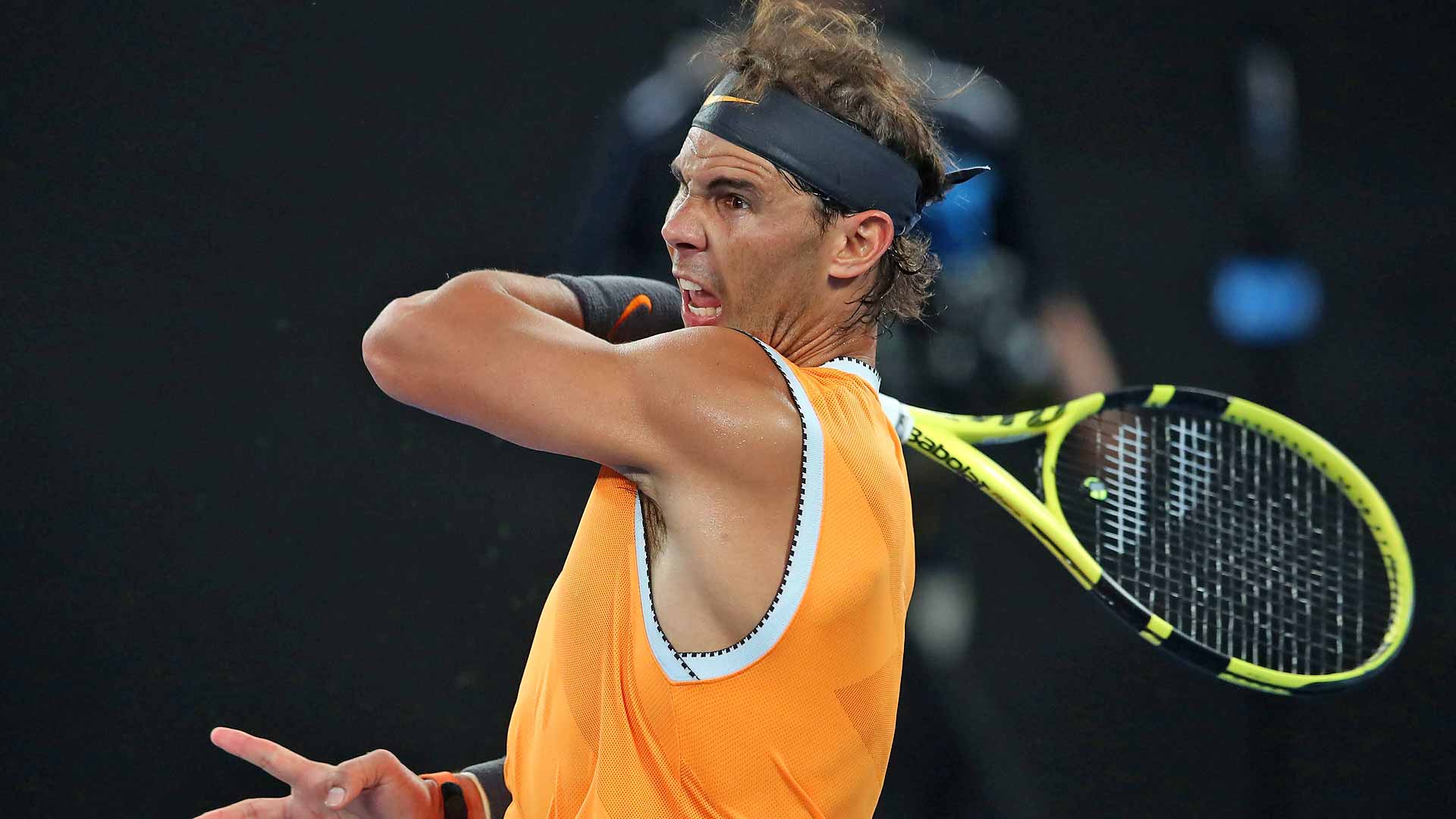
Rafael Nadal isn’t known for hiding behind excuses or trying to re-write history. Still, the World No. 2 has a feeling of injustice ahead of Sunday’s Australian Open final against Novak Djokovic.
The Spaniard’s results in Melbourne have been underwhelming, at least by Nadal’s standards. He triumphed at the Australian Open in 2009, but is 1-3 when reaching the final at the year’s first Slam. Compare that to his record when reaching the final at Wimbledon (2-3), the US Open (3-4) or at Roland Garros (11-0) and the numbers don’t quite stack up. Whether it was because of stiff competition or the trials that come with injury, Nadal has faced obstacles throughout the years on his road to the Australian Open crown.
With 17 Grand Slams to his name and the opportunity for an 18th on Sunday, the 32-year-old has a sense of unfinished business heading into his showdown with Djokovic, and a unique relationship with the first major of the year. Since winning the title in 2009, when he defeated Fernando Verdasco in the semi-finals and Roger Federer in the final — both in five-set matches — Nadal has stumbled at the last hurdle three times at Melbourne Park. In 2012, he lost to Djokovic 5-7, 6-4, 6-2, 6-7(5), 7-5; in 2014, he fell to Stan Wawrinka 6-3, 6-2, 3-6, 6-3; and in 2017, he was defeated by Federer 6-4, 3-6, 6-1, 3-6, 6-3.
[embedded content]
Even harder to accept than those losses has been dealing with the setbacks that have come due to injuries. In 2010, Nadal bowed out in the quarter-finals while trailing against Andy Murray 3-6, 6-7(2), 0-3 due to pain in his knee. One year later, Nadal suffered a 6-4, 6-2, 6-3 defeat to David Ferrer in the quarter-finals after sustaining a hamstring injury. A back injury was partly responsible for his 2014 loss to Wawrinka and a thigh ailment forced Nadal to retire in the quarter-finals while behind against Marin Cilic 6-3, 3-6, 7-6(5), 2-6, 0-2 last year.
The question must be asked: Does Nadal feel the need for redemption on Sunday?
“I’ve had a lot of issues, but not a lot of luck here,” Nadal said, regarding his relationship with the Australian Open. “But does this tournament or the sport owe me something? Of course not. Neither are indebted to me in any way. Some might see it from that perspective, but I don’t. It just isn’t the case.”
Of course, Nadal also has fond memories of Melbourne, which include a pair of losses in epic encounters. In the 2012 championship clash, the Spaniard battled for five hours and 53 minutes before succumbing to Djokovic. In that match, Nadal led 4-2 in the final set before squandering his lead and ultimately the match. Five years later, Nadal led 3-1 in the deciding set before losing to Federer for the title.
10 Fast Facts: The Djokovic-Nadal Australian Open Final
“When you compete and lose like I did in the final in 2012 and 2017, you go home touched by the moment. I was impacted by having missed the opportunity, but at the same time I left those two tournaments totally satisfied and happy with everything I had accomplished,” Nadal said in regard to the memorable showdowns.
Still, it’s difficult for Nadal to shake the memory of the 2014 final. While warming up ahead of his match against then No. 8 Wawrinka, Nadal sustained a back injury which inhibited his performance against his Swiss opponent.
“The 2014 final was especially tough, much more than any other final I’ve lost,” Nadal said, while taking nothing away from Wawrinka’s spectacular performance.
A poised Nadal takes the past in stride, while also hoping to turn a page and add another chapter to history on Sunday. Nadal will attempt to be the first man in the Open Era (since April 1968) – and only the third man in history – to win each of the four Grand Slam championship titles twice. Australians Roy Emerson and Rod Laver are the only players to have achieved that milestone on two or more occasions.
“I’ve suffered here and have endured a lot of disappointments,” Nadal said. “The injuries have hurt more than the losses. But to blame the Open? If only it was that simple.”
Be the first to comment